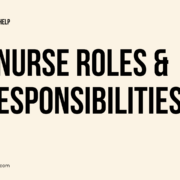Medication Calculations Made Easy: Strategies for Building Confidence and Accuracy in Nursing Students
Medication Calculations Made Easy: Strategies for Building Confidence and Accuracy in Nursing Students
Medication Calculations are a critical aspect of nursing practice, ensuring accurate administration of medications and promoting patient safety. However, many nursing students find medication calculations challenging. This comprehensive article aims to provide nursing students with effective strategies and practical tips to build confidence and accuracy in medication calculations. By employing these strategies, nursing students can enhance their competence and become proficient healthcare professionals.
Understanding the Basics of Medication Calculations
To excel in medical calculations, nursing students must develop a strong foundation in basic concepts. This section will delve deeper into fundamental topics such as unit conversions, dosage calculations, and administration routes. Nursing students will learn about the metric system and its importance in healthcare. They will explore ratios and proportions as valuable tools for solving medication calculations. Additionally, dimensional analysis will be discussed as a systematic approach to simplifying complex calculations. The section will provide comprehensive examples and practice problems to reinforce understanding and help nursing students grasp the fundamentals effectively.

Practice, Practice, Practice: Strengthening Calculation Skills
Consistent practice is essential for nursing students to master medical calculations. This section will emphasize the significance of regular practice exercises in developing calculation skills. Nursing students will be encouraged to dedicate focused time to practicing calculations, incorporating medication calculation drills into their study routines. The section will provide a range of resources, including online modules, mobile applications, and textbooks with extensive practice problems. It will also offer tips on creating personalized practice plans and setting achievable goals. Regular practice will build confidence, improve accuracy, and enhance the speed at which nursing students perform medication calculations.
Real-World Scenarios: Applying Medical Calculations in Context
Linking medical calculations to real-world scenarios enhances nursing students’ understanding of their practical applications. This section will present case studies and patient scenarios that require students to calculate dosages, consider patient-specific factors, and make critical decisions. By applying calculations in context, nursing students can better comprehend the importance of accurate medication administration. Examples may include calculating the appropriate dose for a pediatric patient based on weight, adjusting medication dosage for patients with renal impairment, or converting between different measurement systems. These real-world scenarios provide invaluable hands-on experience and prepare nursing students to confidently apply medical calculations in diverse clinical situations.
Collaboration and Peer Learning: Learning from Each Other
Collaborative learning environments significantly benefit nursing students in understanding medical calculations. This section will emphasize the advantages of studying and practicing medication calculations in groups. Nursing students are encouraged to form study groups, engage in peer tutoring, or participate in collaborative learning activities. Group discussions facilitate the sharing of knowledge, exchange of tips and strategies, and collective problem-solving. Collaborative learning also enhances critical thinking skills as students engage in dialogue and debate. Additionally, this section will discuss the benefits of peer teaching, where nursing students take turns explaining concepts and calculations to their peers. Such collaborative approaches create a supportive environment that fosters deeper understanding and boosts confidence in medication calculations.

Seeking Guidance and Utilizing Resources: Enhancing Competence
Seeking guidance from instructors, clinical preceptors, or experienced nurses is crucial when facing challenges in medication calculations. This section will highlight the importance of utilizing available resources and seeking help when needed. Nursing students are encouraged to consult textbooks, online tutorials, or medication calculation-specific resources. Instructors and clinical preceptors can provide guidance and clarification on complex calculations. Double-checking calculations and verifying answers are emphasized to ensure accuracy and patient safety. Moreover, this section will address the significance of staying updated with evidence-based guidelines and best practices in medication calculations. By leveraging resources and seeking guidance, nursing students can enhance their competence and confidence in medication calculations.
Overcoming Challenges: Strategies for Success
Medication calculations can pose challenges for nursing students. This section will address common difficulties encountered in medication calculations, such as complex dosage calculations, unfamiliar measurement systems, or handling decimals and fractions. Strategies for overcoming these challenges will be discussed, including breaking calculations into smaller steps, seeking clarification from instructors, using memory aids or mnemonics, and practicing with diverse medication scenarios. Nursing students will be encouraged to develop problem-solving skills and to adopt a systematic approach to medication calculations. By persistently applying these strategies, nursing students can overcome challenges and develop competence in medication calculations.
Maintaining Competency: Continued Learning and Review
Competency in medication calculations requires ongoing learning and review. This section will emphasize the importance of continuously refreshing knowledge and skills. Nursing students are encouraged to participate in continuing education programs, attend workshops, and engage in professional development activities related to medication calculations.

Regular review of medication calculation concepts and practice problems will help solidify knowledge and ensure accuracy. Nursing students should also take advantage of technology tools, such as medication calculation apps or computer programs, to enhance their calculation skills. By maintaining competency through continued learning and review, nursing students can confidently navigate medication calculations throughout their nursing careers.
Conclusion
Mastering medication calculations is an essential skill for nursing students to become competent healthcare professionals. This article has provided strategies for building confidence and accuracy in medication calculations. By understanding the basics, engaging in regular practice, applying calculations to real-world scenarios, collaborating with peers, seeking guidance, and maintaining continued learning, nursing students can excel in medication calculations. With consistent practice and a comprehensive understanding of medication calculations, nursing students can navigate dosage calculations with ease, ultimately providing optimal care and ensuring patient safety. By incorporating these strategies into their learning journey, nursing students can approach medication calculations with confidence, competence, and unwavering accuracy.

If you find yourself in need of further assistance or guidance with nursing assignments, including medication calculations and other related topics, our Nursing Research professional assignment help services are here to support you. Our team of experienced experts specializes in providing personalized and comprehensive assistance to nursing students. Whether you require help with case studies, care plans, research papers, or any other nursing assignment, we are dedicated to ensuring your success. Contact us today to access high-quality, reliable assignment help tailored to your specific needs. Let us help you excel in your nursing education and achieve your academic goals.












